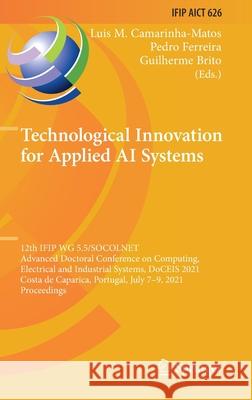Technological Innovation for Applied AI Systems: 12th Ifip Wg 5.5/Socolnet Advanced Doctoral Conference on Computing, Electrical and Industrial System » książka
topmenu
Technological Innovation for Applied AI Systems: 12th Ifip Wg 5.5/Socolnet Advanced Doctoral Conference on Computing, Electrical and Industrial System
ISBN-13: 9783030782870 / Angielski / Twarda / 2021 / 360 str.
Technological Innovation for Applied AI Systems: 12th Ifip Wg 5.5/Socolnet Advanced Doctoral Conference on Computing, Electrical and Industrial System
ISBN-13: 9783030782870 / Angielski / Twarda / 2021 / 360 str.
cena 481,91
(netto: 458,96 VAT: 5%)
Najniższa cena z 30 dni: 462,63
(netto: 458,96 VAT: 5%)
Najniższa cena z 30 dni: 462,63
Termin realizacji zamówienia:
ok. 22 dni roboczych.
ok. 22 dni roboczych.
Darmowa dostawa!
Kategorie:
Kategorie BISAC:
Wydawca:
Springer
Seria wydawnicza:
Język:
Angielski
ISBN-13:
9783030782870
Rok wydania:
2021
Wydanie:
2021
Numer serii:
000385858
Ilość stron:
360
Waga:
0.70 kg
Wymiary:
23.39 x 15.6 x 2.24
Oprawa:
Twarda
Wolumenów:
01
Dodatkowe informacje:
Wydanie ilustrowane











